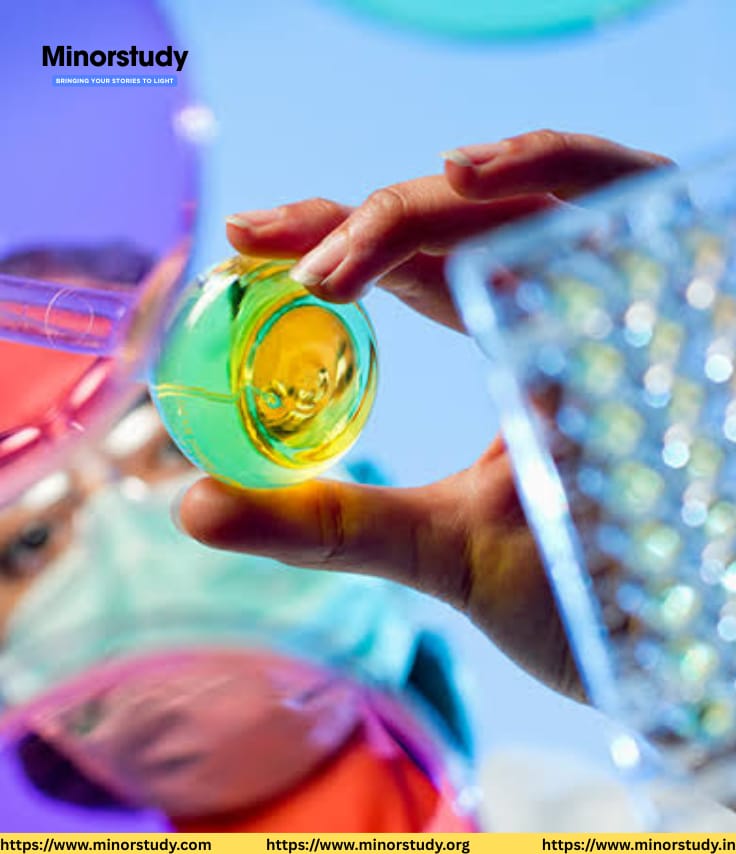🧬 Introduction: Biotechnology – Where Science Meets Humanity
Biotechnology is not just science in a lab; it is life itself reimagined. From creating vaccines to growing drought-resistant crops and fighting genetic disorders, biotechnology has quietly become a game-changer in human history.
- 🧭 Timeline: Key Milestones in Biotechnology History
- 📚 Biotechnology Facts You Should Know
- ❓ FAQs – Frequently Asked Questions About Biotechnology
- Q1: What is biotechnology?
- Q2: Is biotechnology safe?
- Q3: What are some examples of biotechnology?
- Q4: How is biotechnology used in daily life?
- Q5: What careers are in biotechnology?
- 🌍 Significance: Why Biotechnology Truly Matters
- 🧠 Observance and Awareness
- ✨ Important Points to Remember
- 💖 Wishing Note for Students and Innovators
- 🏡 Impact in Daily Life – Human-Centric Reflection
- 🧬 Biotechnology’s Importance in Society
- 🔚 Conclusion: Biotechnology – Humanity’s Greatest Scientific Ally
Often misunderstood as complex or purely industrial, biotechnology is simply the use of living organisms or biological systems to develop new products and solutions for human needs. Whether it’s the insulin in your body, the vaccines in your arm, or the food on your table, biotechnology is behind it all.
In this article, we’ll explore the past, present, and transformative future of biotechnology, and why it holds life-altering promise for society.
🧭 Timeline: Key Milestones in Biotechnology History
| Year | Event |
|---|---|
| 8000 BCE | Humans begin selective breeding of crops – the earliest biotechnology. |
| 1796 | Edward Jenner develops the first vaccine (smallpox). |
| 1865 | Gregor Mendel lays the foundation of genetics. |
| 1928 | Alexander Fleming discovers penicillin. |
| 1953 | Watson and Crick discover DNA’s double helix structure. |
| 1973 | First genetically modified organism (E. coli with recombinant DNA). |
| 1982 | FDA approves the first biotech drug: synthetic insulin. |
| 2003 | Human Genome Project is completed. |
| 2020–2023 | mRNA vaccines developed for COVID-19. |
| Future | CRISPR and gene editing hold the key to curing inherited diseases. |
📚 Biotechnology Facts You Should Know
🧪 Biotechnology is over 10,000 years old – early humans used fermentation to make bread and alcohol.
🧬 The biotech industry was worth over $1.37 trillion in 2023.
🌾 GMOs have increased global crop yields by over 20% and reduced pesticide use.
🧫 Biotechnology helps clean oil spills using microbes that “eat” hydrocarbons.
💉 The first mRNA vaccine (Pfizer-BioNTech COVID-19 vaccine) was developed in record time.
🧠 Scientists are now using biotechnology to regenerate damaged brain cells and treat Parkinson’s.
🌍 It is one of the most sustainable tools to combat climate change.
❓ FAQs – Frequently Asked Questions About Biotechnology
Q1: What is biotechnology?
Biotechnology is the use of biological systems, organisms, or cells to create or improve products and processes in medicine, agriculture, and environmental science.
Q2: Is biotechnology safe?
Yes, most biotechnology applications are highly regulated and tested. Products like medicines, vaccines, and crops go through years of clinical trials and approvals.
Q3: What are some examples of biotechnology?
Making yogurt and cheese
Genetically engineered insulin
CRISPR gene editing
Biofuels and biodegradable plastics
Disease-resistant crops
Q4: How is biotechnology used in daily life?
From vaccines and medicines to the food you eat and the clothes you wear (bio-fabrics), biotechnology is present in nearly every aspect of modern living.
Q5: What careers are in biotechnology?
You can be a geneticist, biomedical engineer, lab technician, pharmaceutical researcher, agricultural scientist, or even work in environmental conservation.
🌍 Significance: Why Biotechnology Truly Matters
Biotechnology is not just a field of study — it’s a force that shapes humanity.
Here’s why it’s so significant:
🩺 Medical Impact: Biotechnology has saved millions of lives via vaccines, insulin, cancer therapies, and gene editing.
🌾 Food Security: It enhances crop yield, nutrition, and pest resistance, ensuring global food supply.
🌱 Sustainability: Bioplastics, biofuels, and biodegradable waste solutions are eco-friendly alternatives.
🧠 Precision Medicine: Patients now receive personalized treatments based on their genetic makeup.
🌊 Environmental Cleanup: Microbes help clean up oil spills and toxic waste — a bio-remedy to pollution.
🧠 Observance and Awareness
While there’s no fixed “World Biotechnology Day,” these observances highlight its importance:
| Date | Occasion |
|---|---|
| April 25 | DNA Day – Celebrating the discovery of the DNA structure |
| June 5 | World Environment Day – Showcasing biotech solutions to climate change |
| October (varies) | World Food Day – Recognizing biotech’s role in food security |
| National Biotech Week (Canada) | Held in September to promote biotech awareness |
In many countries, biotech fairs and lab visits are organized for students to ignite interest in life sciences.
✨ Important Points to Remember
Biotechnology has ancient roots but modern miracles.
It’s at the center of healthcare, agriculture, energy, and environment.
Genetic engineering, synthetic biology, and CRISPR are the future pillars.
Ethical concerns like gene privacy and GMO usage are ongoing debates.
It’s a career-rich and future-forward field for youth.
💖 Wishing Note for Students and Innovators
🌱 To the young minds and dreamers diving into biotechnology – may your curiosity lead you to discoveries that heal, feed, and uplift the world. May your genes spark genius. 🧬
🏡 Impact in Daily Life – Human-Centric Reflection
Imagine living without:
Insulin for diabetes
Vaccines for deadly diseases
Nutritious and abundant food
Clean air and water purification
Without biotechnology, the quality and longevity of human life would decline. It quietly supports billions of lives — often without recognition.
And beyond function, it fuels hope — that diseases will be cured, hunger defeated, and the planet restored.
🧬 Biotechnology’s Importance in Society
Healthcare Transformation
From curing rare diseases to making affordable medicines, it reshapes public health globally.Agricultural Security
As populations grow and climate shifts, biotechnology ensures food availability and resilient farming.Climate Action
Microorganisms and green tech reduce carbon emissions and build climate resilience.Economic Power
The biotech industry creates millions of jobs and fuels national GDPs through innovation and exports.Ethical Challenges
With power comes responsibility – ethical biotechnology promotes informed policies and biosecurity.
🔚 Conclusion: Biotechnology – Humanity’s Greatest Scientific Ally
Biotechnology is not just science — it’s the bridge between imagination and real-world healing. It’s a toolbox of life, helping us redesign what it means to survive and thrive.
We are now entering a biotech golden era, where science will not only extend life but enhance its quality. And for every breakthrough, there’s a human story — a patient cured, a child fed, a tree protected.
Let’s honor biotechnology for what it is: a silent guardian of life.








